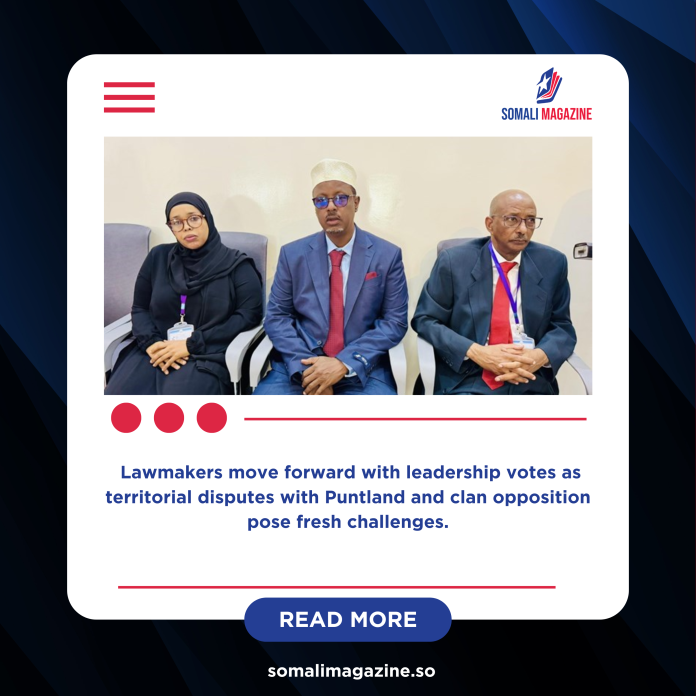Facebook Twitter (X) Instagram Somali Magazine - People's Magazine
Lawmakers in Somalia’s newly created Northeastern state are preparing to elect their parliamentary speakers on Saturday in Las Anod, taking another significant step in the process of establishing the federal member state.
The state’s Electoral Commission confirmed that five candidates are competing for leadership positions within the new parliament. Two contenders are vying for the position of speaker, while three others are running for the deputy speaker roles. This election marks an important phase in shaping the political framework of the new administration.
Officials from the Federal Government of Somalia have stated that the state-building process will be completed once a president is elected. President Firdhiye, who currently leads the region and is believed to have the backing of federal authorities in Mogadishu, is actively campaigning to retain his seat. His reelection is seen as a test of the state’s political stability and its alignment with the central government.
So far, the formation of Northeastern state’s parliament has been relatively smooth compared to similar processes in other Somali regions. The list of new members of parliament, recently announced by the council, has not been met with disputes or challenges. All candidates have publicly accepted the composition of the chamber, a sign that the process is enjoying a rare level of political consensus. This has raised cautious optimism that the emerging administration could avoid some of the tensions that have previously slowed down state-building efforts in Somalia.
However, serious challenges remain ahead. One of the biggest obstacles is the issue of territorial control. Northeastern state claims authority over parts of Sanaag Bari, an area that Puntland also administers. This territorial overlap has already created friction between the two administrations. Earlier this week, clan elders from the Warsangeli community announced their rejection of Northeastern state’s authority, declaring their allegiance to Puntland instead.
In response, Puntland has deployed additional troops to the Sanaag region, signaling its determination to maintain control and resist any attempt by the new state to assert influence. This military buildup raises concerns of potential clashes, adding to the already fragile security environment in northern Somalia.
Analysts say the tension between Northeastern state and Puntland highlights the recurring problem of overlapping claims in Somalia’s federal system. While the federal constitution outlines the framework for creating new states, disputes over territory and clan representation continue to generate instability. The Northeastern state’s efforts to expand authority into contested areas could become a flashpoint for conflict if not handled through dialogue and negotiation.
Despite these challenges, some observers argue that the relatively peaceful selection of parliament members and the upcoming election of speakers demonstrate progress. For Somalia, where political disputes often escalate into violence, even small steps toward orderly governance are seen as significant.
The Federal Government in Mogadishu is closely monitoring developments, with hopes that the new state will strengthen the broader federal system rather than weaken it through conflict. Officials believe that if Northeastern state can finalize its leadership structure and conduct a presidential election without major disputes, it could serve as a model for future state-building processes.
Still, the coming weeks will be crucial. The outcome of the parliamentary leadership election and the eventual presidential race will determine not only the internal direction of Northeastern state but also its relationship with both Puntland and the federal government. For residents of the region, the key question remains whether the new administration can deliver stability, security, and representation, or whether it will become another arena of political rivalry in Somalia’s long and complex federal experiment.

